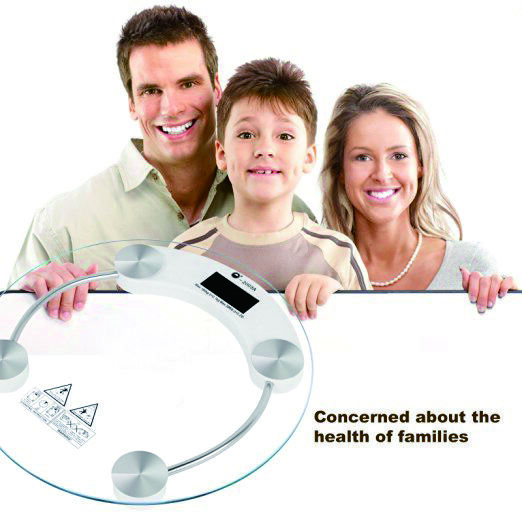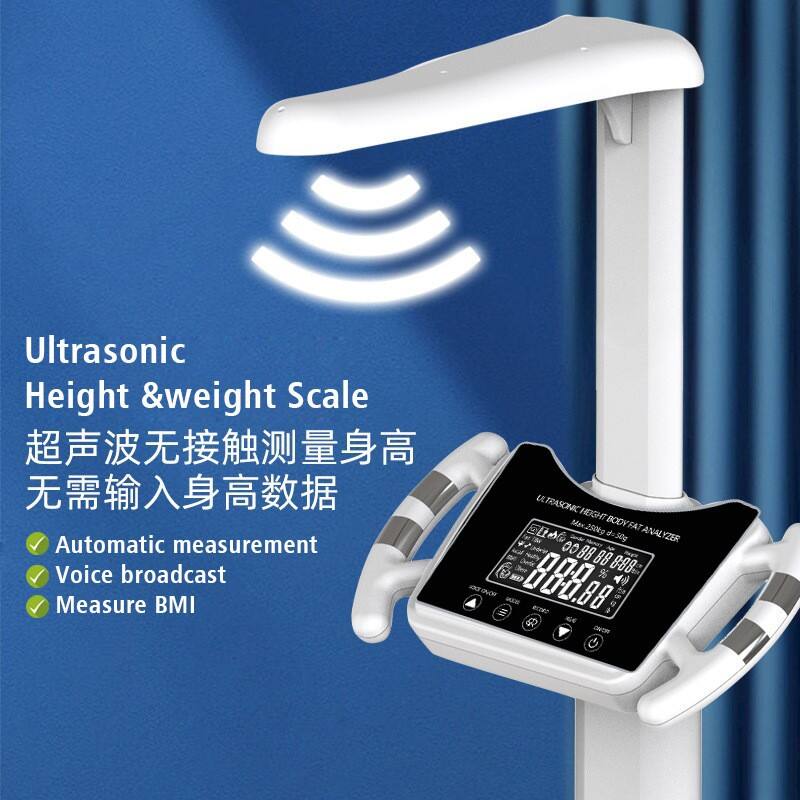Understanding the Evolution of Body Weight Measurement Technology
The world of health monitoring has undergone a dramatic transformation with the advent of smart body scales. These innovative devices have revolutionized how we track our health metrics, offering capabilities that extend far beyond simple weight measurement. As technology continues to advance, smart body scales have emerged as powerful tools for health-conscious individuals seeking comprehensive body composition analysis.
Traditional bathroom scales have served us well for decades, providing basic weight measurements. However, the introduction of smart body scales has sparked a significant debate about accuracy, reliability, and the overall value they bring to personal health monitoring. These modern devices incorporate sophisticated sensors and advanced algorithms to deliver detailed insights about body composition, making them increasingly popular among fitness enthusiasts and health-conscious individuals.
The Technology Behind Smart Body Scales
Bioelectrical Impedance Analysis Explained
Smart body scales utilize bioelectrical impedance analysis (BIA) technology to measure various body composition metrics. This sophisticated system works by sending a small, safe electrical current through your body. Since different tissues conduct electricity differently, the scale can calculate various body composition measurements based on the speed at which this current travels. Fat tissue provides more resistance to electrical current than muscle tissue, allowing the scale to determine body fat percentage and other metrics.
The advanced sensors in smart body scales process this data through complex algorithms, providing users with detailed information about their body composition. This includes metrics such as body fat percentage, muscle mass, bone density, and water content - measurements that traditional scales simply cannot provide.
Connectivity and Data Analysis Features
Modern smart body scales excel in their ability to connect with smartphones and fitness apps through Bluetooth or WiFi. This connectivity enables automatic data tracking, trend analysis, and comprehensive health monitoring over time. Users can access their historical data, set goals, and monitor progress through user-friendly mobile applications. Many smart body scales can even sync with popular fitness platforms, creating an integrated approach to health and wellness monitoring.
The data analysis capabilities of smart body scales extend beyond simple measurements. These devices often include features like weather forecasts, room temperature monitoring, and even multiple user profiles, making them versatile additions to any modern bathroom.
Accuracy Comparison: Smart vs Traditional Scales
Measurement Precision and Consistency
When it comes to basic weight measurement, both smart body scales and traditional scales can provide accurate readings. However, smart body scales often incorporate more advanced weight sensors and calibration systems. These modern components, combined with digital display technology, can offer more precise measurements down to decimal points. Many smart body scales also feature position sensors that ensure accurate readings regardless of where you stand on the platform.
Smart body scales typically maintain their calibration better over time compared to traditional mechanical scales. They often include auto-calibration features and can compensate for environmental factors that might affect readings, such as temperature changes or uneven surfaces.
Additional Metrics and Their Reliability
While traditional scales focus solely on weight, smart body scales provide multiple health metrics. The accuracy of these additional measurements depends largely on the quality of the scale's sensors and algorithms. High-end smart body scales often deliver body composition measurements that closely align with professional-grade equipment found in medical settings.
However, it's important to note that factors such as hydration levels, recent exercise, and even the time of day can affect these additional measurements. The best smart body scales account for these variables and may even prompt users to take measurements under consistent conditions for optimal accuracy.

Practical Benefits of Smart Body Scales
Comprehensive Health Monitoring
Smart body scales provide users with a more complete picture of their health status. By tracking multiple metrics simultaneously, users can better understand how lifestyle changes affect their overall body composition. This comprehensive approach to health monitoring can be particularly valuable for individuals following specific fitness programs or working towards particular health goals.
The ability to track trends over time through connected apps helps users identify patterns and make more informed decisions about their health and fitness routines. This long-term data collection and analysis capability represents a significant advantage over traditional scales.
Integration with Digital Health Ecosystems
The seamless integration of smart body scales with other health and fitness devices creates a powerful ecosystem for health monitoring. Many smart scales can communicate with fitness trackers, smartwatches, and health apps, providing a unified platform for tracking overall wellness. This integration enables users to correlate their body composition changes with activity levels, nutrition, and other health factors.
The convenience of automatic data synchronization eliminates the need for manual record-keeping and makes it easier to share information with healthcare providers or fitness professionals when needed.
Making an Informed Choice for Your Needs
Investment Considerations
While smart body scales typically represent a higher initial investment than traditional scales, their additional features and capabilities often justify the cost for health-conscious individuals. When evaluating the price difference, consider the value of comprehensive body composition analysis, data tracking capabilities, and integration with other health devices.
The long-term benefits of having detailed health insights and the convenience of automatic data tracking can make smart body scales a worthwhile investment for many users. Additionally, the durability and reliability of quality smart scales often result in a longer useful life compared to traditional mechanical scales.
User Experience and Accessibility
Smart body scales are designed with user experience in mind, featuring clear digital displays and intuitive interfaces. Many models support multiple user profiles, making them ideal for families or shared living situations. The ability to access data through smartphone apps adds another layer of convenience and makes it easier to track progress over time.
However, users should consider their comfort level with technology and their specific health monitoring needs when choosing between smart and traditional scales. Some individuals may prefer the simplicity of traditional scales, while others will benefit from the advanced features of smart body scales.
Frequently Asked Questions
How often should I calibrate my smart body scale?
Most smart body scales feature auto-calibration technology, but it's recommended to verify accuracy every few months by weighing a known object. Some models may require manual calibration when changing locations or batteries.
Can multiple people use the same smart body scale?
Yes, most smart body scales support multiple user profiles, typically ranging from 8-16 users. The scale can automatically recognize different users based on their previous measurements and body composition data.
How accurate are the body fat measurements on smart scales?
Body fat measurements on smart scales are generally within 3-4% accuracy compared to professional methods like DEXA scans. For best results, take measurements at the same time each day under similar conditions, such as in the morning before eating or drinking.
Will my smart scale work without WiFi connection?
Yes, smart body scales will still function as basic weight scales without WiFi. However, features like data synchronization and advanced metrics may be limited. Most scales can store readings locally until the next successful sync with your phone or network.

